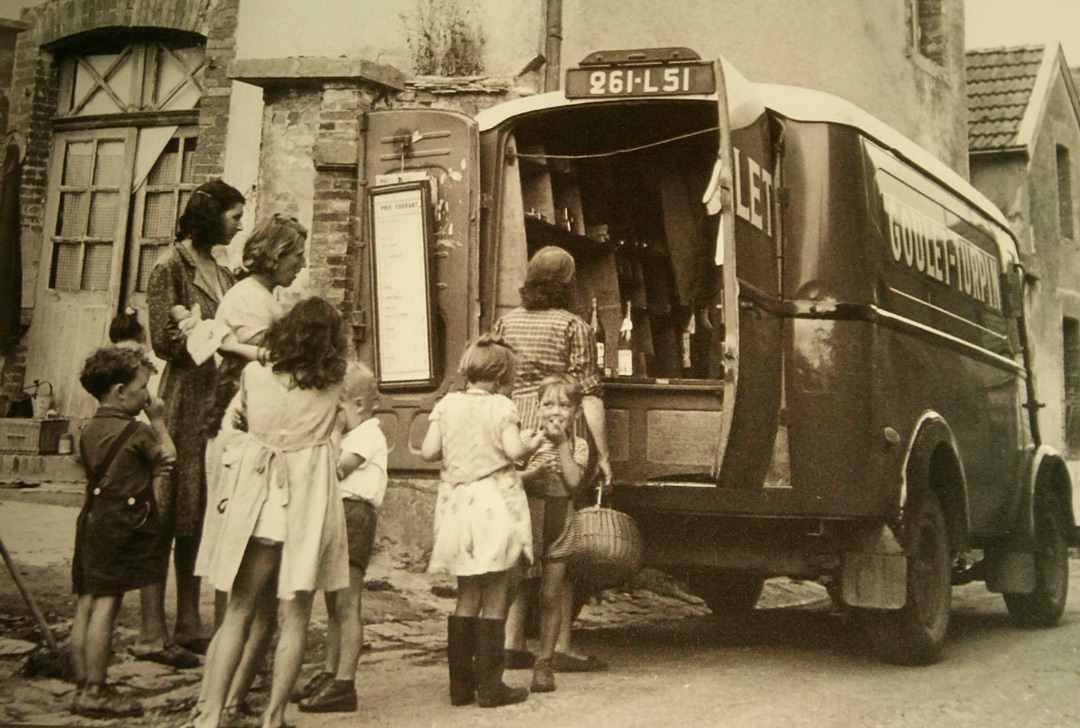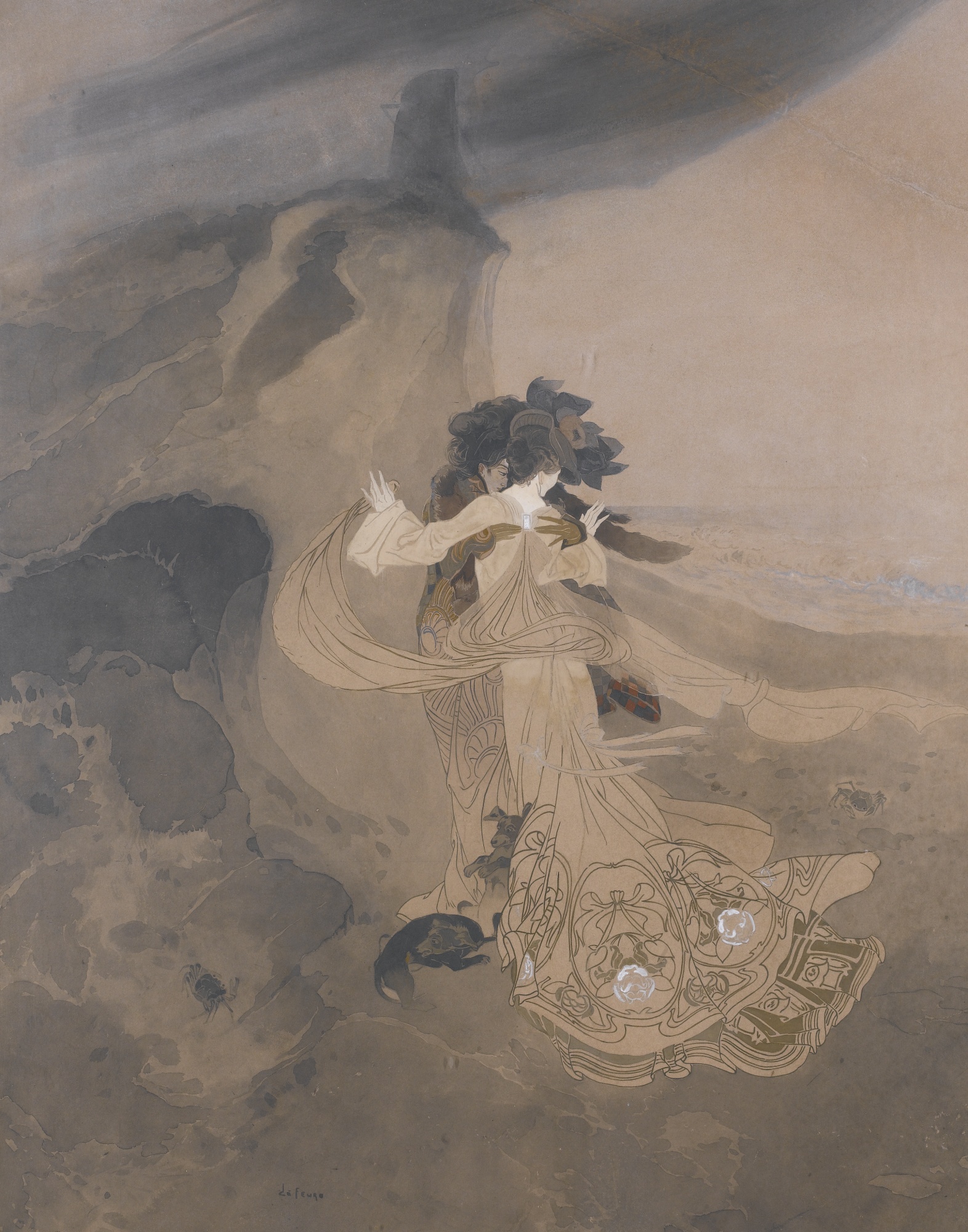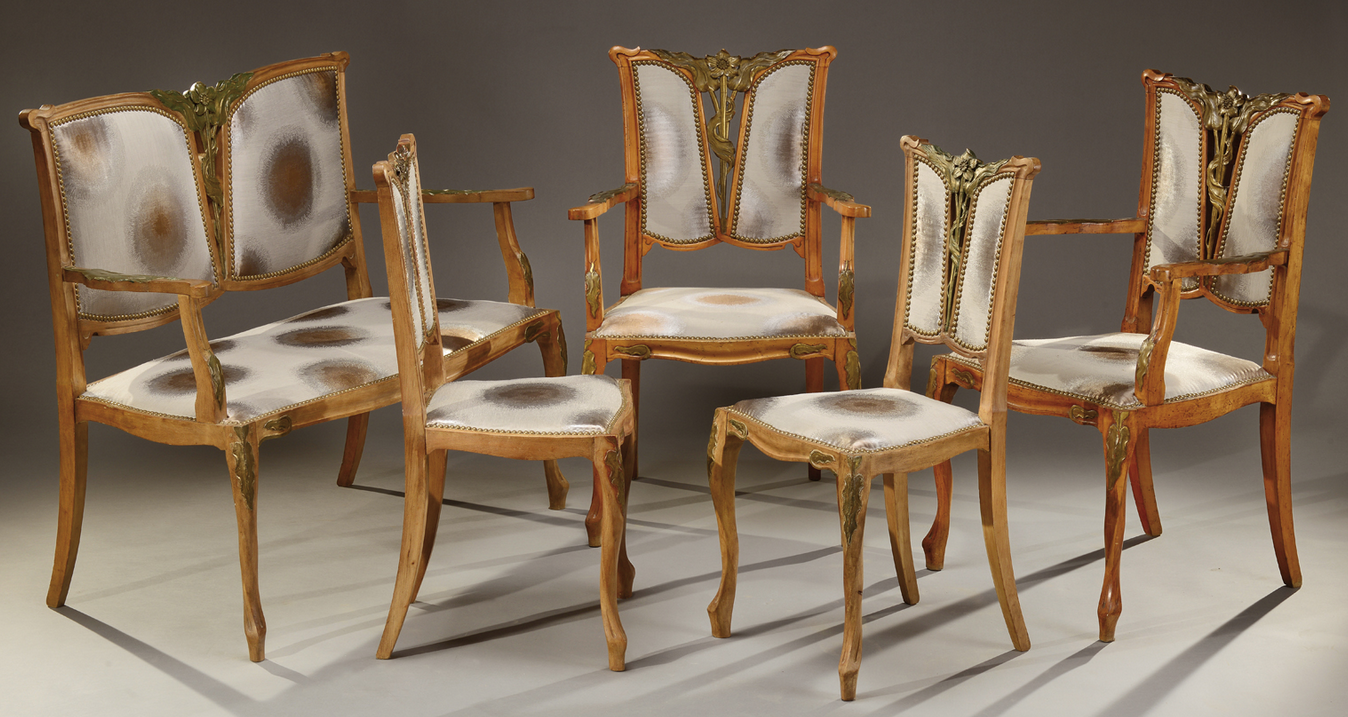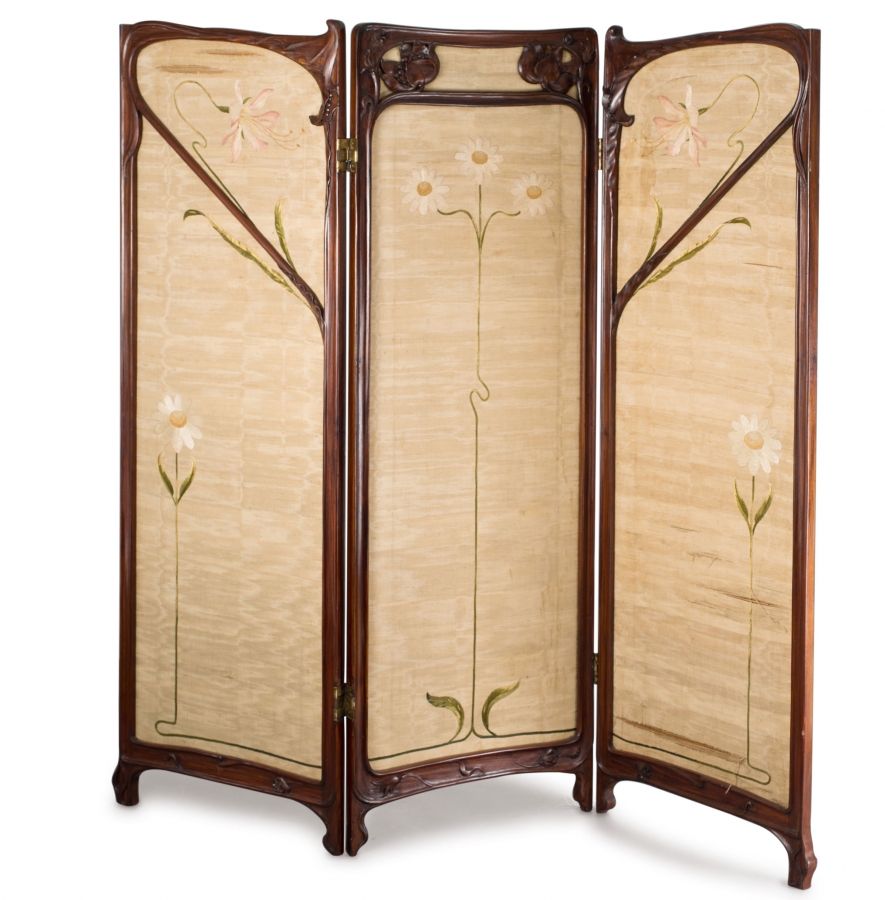Georges de Feure, born Georges Joseph van Sluÿters, was the son of an affluent Dutch architect living in Paris. De Feure was a versatile artist and designer, who created paintings, fine furniture, porcelain and pottery, art glass, leaded glass windows, carpeting, silverware and jewelry as well as many well-known graphic arts and posters. He was also a set designer and interior designer.
He began as an apprentice in the book trade in the Hague, where he became acquainted with symbolism. In 1886, de Feure was one of the eleven students admitted at the Rijkscademie voor Beeldende Kunsten in Amsterdam, however he left soon afterwards, deciding that formal academic training had nothing to offer him. In 1890 he moved to Paris to become a pupil of Jules Cheret, designing posters for the Salon Des Cent, Loie Fuller and Thermes Liegois while there. His paintings were exhibited at the Societé Nationale in 1894, in the Salon de la Rose Croix of 1893 and 1894, and at the 1896 Munich Secession. At this time, he was also designing interiors and held the post of 'Professor of Decorative Arts' at the École des Beaux-Arts. Some of De Feure's best works were posters done in the Art Nouveau style, usually containing stylish young women in shades of brown, green, and rose, sometimes showcasing a Japanese influence. The elegance of these popular images caused Lady Abdy to name De Feure "the poet of the poster."
De Feure’s first commissions were illustrations and set designs. Samuel Bing discovered De Feure after seeing many of his paintings featured in the Paris Salons and his illustrations for Parisian periodicals and poster designs. During the 1890s, De Feure shifted from painting and print-making to designing decorative arts. He exhibited decorated furniture and ceramics at the Salon de la National Beaux Arts in 1894. He was known for creating high-end furniture for the elite. De Feure quickly became one of Bing's top designers and Bing encouraged De Feure to expand his talents to all areas of art and design. Although he never signed an exclusive contract with Bing, De Feure worked principally for the dealer by 1899 while cultivating his own private clientele. De Feure's furniture designs displayed many of the same characteristics as his graphic art; his chairs and couches are comprised of delicate linear patterns, which frame panels of textiles, also of his design.
De Feure exhibited and was awarded gold medals at the 1900 Exposition Universelle for the salon grouping. His work was featured in Bing's gallery from 1895 until it closed in 1904, one year prior to Bing's death. In 1902 his work was featured at the first Salon Des Industries Du Mobilier at the Grand Palais in Paris. For Maison De L'Art Nouveau, De Feure made silverware and metalware in a delicate and linear style, similar to his graphic work and furniture work done for Bing. Before the outbreak of WW1, he moved to England where he worked mainly as a set designer. Gifted with a highly inventive mind, he created theater sets and costumes with an aeronautic theme. In 1928 De Feure returned to Paris where he was appointed Professor at the École Nationale Supérieure Des Beaux-Arts. He continued to work and teach throughout the Art Deco period until his death in 1943.
Found these online accidentally and kinda just really like them from a design standpoint. On a side note, Pantone is a great app for your iPhone or iPad if you find yourself in the type of locations that merit Pantone documentation. Like heaven, the other side of rainbows, Old San Jaun in Puerto Rico, or grandma's rose bush garden.























































